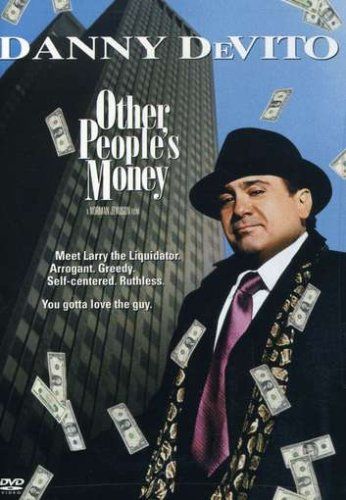Other People’s Money — The Film

“Indeed, from the very beginnings of the industry until the present, it is impossible to ignore the influence of Jews on the movie business or to overlook the importance of a Jewish consciousness in American films.”
—Lester D. Friedman
—Lester D. Friedman
“The Jewish involvement in motion pictures is more than a success story; it is the basis of the disproportionate influence that Jews have had in shaping American popular culture.”
—Steven Silbiger
—Steven Silbiger
“The way Steven Spielberg sees the world has become the way the world is communicated back to us every day.”
—Stephen Schiff
—Stephen Schiff
(See Edmund Connelly, “Understanding Hollywood, Part I: Hollywood’s Jewish Identity”
First, the argument: Hollywood, which is and always has been controlled by Jews, uses the medium of film to mask the vast power Jews have over the finances of America — and much of the rest of the world. In particular, Hollywood makes every effort to whitewash the reality of massive Jewish malfeasance in matters financial. This has been one of my major themes onTOO. See, for example, here, here, here, and here. As you will read, I have documented this pattern and will supplement it with an extensive treatment of the 1991 film Other People’s Money, which gave us a command performance by the diminutive Danny DeVito.
The timing of this film is critical, for it came after a decade of highly publicized Wall Street deals, many of questionable legality or blatant illegality. When we consider the sad spectacle of these scandals of the 1980s, what we find is that there is no doubt about the identity of the vast majority of culprits — at least for those with eyes to see it.
Two writers who had both the eyes to see it and the talent to write about it intelligently were Connie Bruck — who is Jewish — and James B. Stewart — who is not. (Intriguingly, the obituary of Stewart’s mother notes that her son James’ “spouse” is one Benjamin Weil, who is Jewish.) ...



